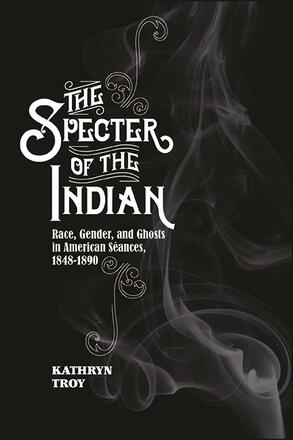
The Specter of the Indian
Race, Gender, and Ghosts in American Seances, 1848-1890
Alternative formats available from:
Explores the significance of Indian control spirits as a dominating force in nineteenth-century American Spiritualism.
Description
The Specter of the Indian unveils the centrality of Native American spirit guides during the emergent years of American Spiritualism. By pulling together cultural and political history; the studies of religion, race, and gender; and the ghostly, Kathryn Troy offers a new layer of understanding to the prevalence of mystically styled Indians in American visual and popular culture. The connections between Spiritualist print and contemporary Indian policy provide fresh insight into the racial dimensions of social reform among nineteenth-century Spiritualists. Troy draws fascinating parallels between the contested belief of Indians as fading from the world, claims of returned apparitions, and the social impetus to provide American Indians with a means of existence in white America. Rather than vanishing from national sight and memory, Indians and their ghosts are shown to be ever present. This book transports the readers into dimly lit parlor rooms and darkened cabinets and lavishes them with detailed séance accounts in the words of those who witnessed them. Scrutinizing the otherworldly whisperings heard therein highlights the voices of mediums and those they sought to channel, allowing the author to dig deep into Spiritualist belief and practice. The influential presence of Indian ghosts is made clear and undeniable.
Kathryn Troy teaches in the Department of Social Sciences and Criminal Justice at Suffolk County Community College and the Department of History, Politics, and Geography at Farmingdale State College, State University of New York.
Reviews
"This book is not only a fascinating case study on the American spiritualist tradition but also an important and original contribution to the history of American religion and ideas of race and gender in the history of religion in the nineteenth century." — Religious Studies Review
"…Troy offers a refreshing and necessary account of how the fantastic plays a part in the historical production of racial categories … Anyone working through tropological studies of the modern phantom investigator or ghostbuster might relish the detailed descriptions of Spiritualist method. Similarly, The Specter of the Indian could be a valuable resource for scholars working through discourses of primitivism, speculative fiction and race, and theorists of speculative philosophy looking for historical work on spectrality." — Journal of the Fantastic in the Arts
"As painful as the racialized images and cultural appropriations are, the world of the Spiritualist movement marks a fascinating and understudied moment in American history and demonstrates the persistence and mutability of Indian images across all aspects of American history. Her book successfully balances the delicate walk between racial stereotypes and religious beliefs, and Troy maintains an admirable professionalism when describing Spiritualist beliefs and activities while also making its iterations of racism and sexism clear." — Native American and Indigenous Studies
"…a significant contribution to scholarship on what is now known as Modern American Spiritualism … The Specter of the Indian offers a valuable demonstration of how 'white guilt' manifested in the cultural imaginary of the time and reveals how the 'specter' of the Native American was used as a political tool." — Nova Religio
"…a fascinating case study of settler guilt made manifest in a Freudian sense, which eventually reveals some unexpected effects on actual Native American peoples of the period." — Transmotion
"…this is a fascinating, innovative, and important volume. It is written in clear and engaging prose and should find a ready audience among scholars of American religion, social reform, Indian affairs, and popular notions of race and gender during the second half of the nineteenth century." — Reading Religion
"Troy's debut work is a compelling addition to recent scholarship addressing nineteenth-century US spiritualism." — CHOICE